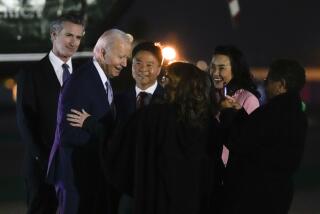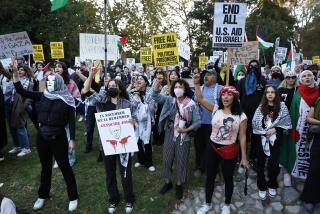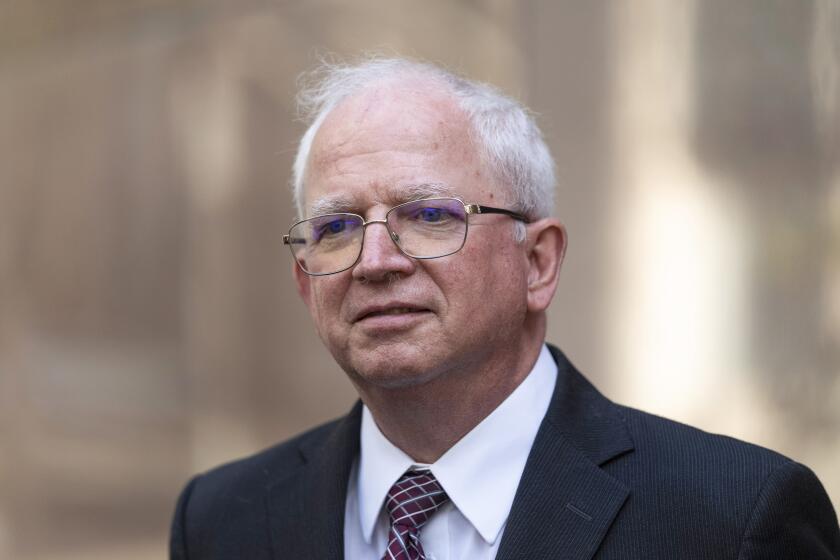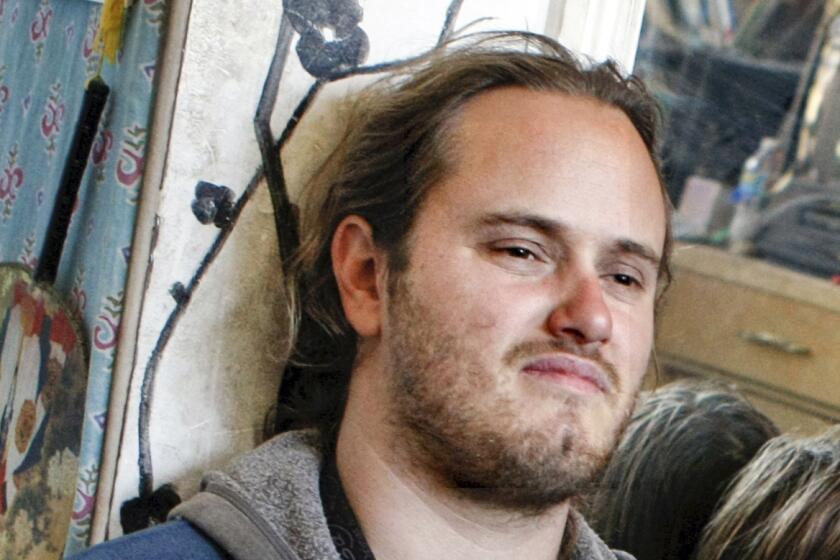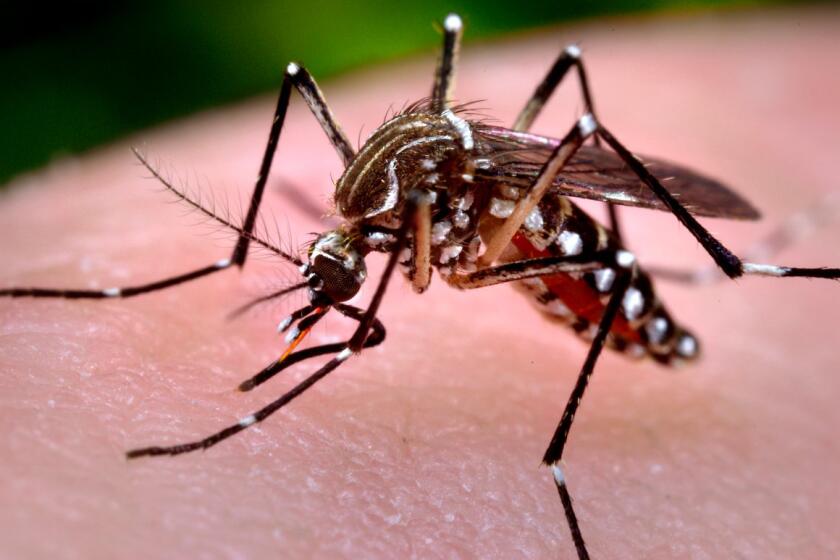Bush Reiterates Call for Volunteers
President Bush shifted his public attention Monday from the Middle East to domestic concerns arising from the Sept. 11 attacks, renewing his call for volunteerism and pushing the Senate to pass a bill to protect businesses from terrorist-induced losses.
Los Angeles Mayor James K. Hahn and Washington Mayor Anthony Williams flew here with Bush aboard Air Force One and joined him in a private meeting with leaders from other cities--including Redondo Beach and Placentia. Bush also gave a speech that spotlighted his fledgling Citizen Corps, part of the volunteerism program he detailed in January. Hahn and Williams then accompanied him back to Washington.
The two Democratic mayors were on hand to support Bush’s efforts to build upon the communal spirit sparked by the September attacks.
Monday’s trip was the second time Bush has met with Hahn, who said he asked the president to back federal reimbursement for cities for increased security measures taken since the attacks. Hahn and other mayors have lobbied for the assistance to cover an estimated $2.6 billion that citizens will spend by the end of 2002, a toll that is draining many municipal budgets.
Bush has proposed giving local governments $3.5 billion to improve police, fire and rescue services, but that money could not be used to replace money already spent on police overtime and other costs.
“He did not give a lot of encouragement to me on that subject,” Hahn said after talking privately with Bush on Monday. The mayor added that he will keep working with congressional leaders on the matter.
In Washington, the Senate considered Bush’s call to immediately act on terrorism insurance legislation but again found itself snagged in a partisan dispute over what should be included in the bill.
The GOP-controlled House approved a measure in November that would provide insurance companies a federal safety net to cover future terrorist attacks. But the measure has bogged down in the Democratic-run Senate by a dispute over provisions that would limit the legal rights of victims of terrorists, among them a prohibition on punitive damages and a limit on attorney’s fees in terrorism-related lawsuits.
The administration says the measure is needed to head off a threat by insurers to exclude terrorism coverage on commercial policies or to drastically increase the cost of such protection.
After his return to Washington, Bush framed the need for the bill as a “jobs issue.”
“If people can’t buy insurance on a construction project, they’re not going to build a project,” he said. “And if they don’t build a project, somebody’s not working. That’s the simplest way I can describe the issue at hand.”
Insurance payouts from the Sept. 11 attacks are expected to range from $30 billion to $70 billion. Under the House measure, when claims from a future attack exceed $1 billion, the government would cover 90% of the losses, up to $100 billion. The government would recoup its money from an assessment on insurance firms and perhaps a surcharge on policyholders.
The measure provides the protection only for the next year, with a possible extension of two years.
Bush has spent the last several days accelerating his administration’s efforts to calm the conflict between Israel and the Palestinians.
The speech on volunteerism reflected a renewed effort by him to focus on domestic programs that have been created, or given new emphasis, as a result of the terrorist attacks.
Hahn was on the stage at the Knoxville Civic Center with Bush as the president spoke to several thousand police officers, emergency technicians and other local residents about a program he said was begun in Los Angeles to help citizens prepare for disasters.
The so-called Community Emergency Response Teams are drawn from volunteers trained by the fire department in disaster preparations, and they work as community-based support for official emergency organizations.
“It gives people a chance to be a part of an emergency response mechanism,” Bush said.
Promoting his call for increased volunteerism, Bush said: “If you want to join in the war against terror, you can join the Citizen Corps, or you can act out of compassion and concern to help make somebody’s life brighter. It is the gathering momentum of millions of acts of kindness and decency and compassion which show the world the true face of America.”
As envisioned by Bush, the Citizen Corps would include medical reserve teams that could respond to terrorist attacks. It also would consist of a type of super-neighborhood watch program that would, among other things, encourage transportation workers--such as truckers, letter carriers and ship captains--to report suspicious activities through a toll-free hotline.
As Bush was touting his program, his own backing for community action was questioned by a spokesman for Rep. David R. Obey of Wisconsin, the ranking Democrat on the House Appropriations Committee. The spokesman, David J. Sirota, said Bush’s budget proposal for next year would effectively eliminate grants to state and local governments for the Clinton administration’s Community Oriented Policing Services program.
Democrats plan to fight that Bush proposal, saying the program is more important than ever in the post-Sept. 11 environment.
*
Times staff writers Edwin Chen, Janet Hook and Richard Simon in Washington contributed to this report.
More to Read
Get the L.A. Times Politics newsletter
Deeply reported insights into legislation, politics and policy from Sacramento, Washington and beyond. In your inbox three times per week.
You may occasionally receive promotional content from the Los Angeles Times.
